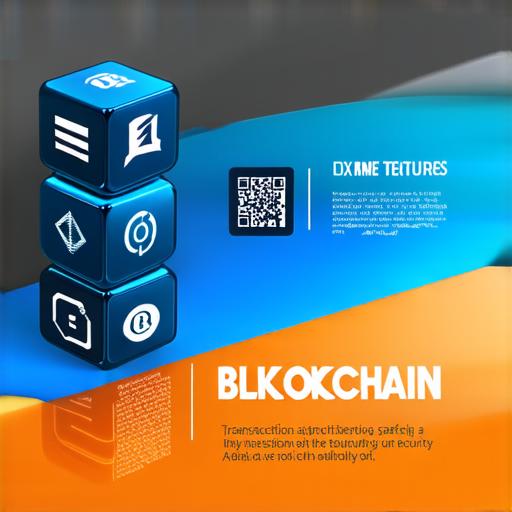Blockchain technology has been gaining widespread attention in recent years as a decentralized, secure, and transparent way to store and manage data. In this article, we will explore the reasons why blockchain is needed and examine its numerous benefits and applications across various industries.
What is Blockchain?
Blockchain is a distributed ledger technology that enables secure and transparent storage of data across multiple nodes or computers on a network. It operates through a consensus mechanism, where all participants agree on the validity of transactions and new blocks added to the chain. The decentralized nature of blockchain eliminates the need for intermediaries or central authorities, making it more resilient and secure.
The Need for Blockchain: A Decentralized Future
One of the primary reasons why blockchain is needed is to address the limitations of traditional centralized systems. In many cases, these systems are vulnerable to hacks, fraud, and corruption, leading to significant financial losses and reputational damage. By using a decentralized approach, blockchain can provide greater security, transparency, and immutability.
Moreover, the growing demand for data privacy and ownership has made it increasingly difficult for traditional centralized systems to meet these requirements. Blockchain enables individuals to have control over their own data, as they can store and manage it securely without relying on intermediaries.

Blockchain Applications across Industries
Blockchain technology is rapidly gaining traction across various industries, including finance, healthcare, supply chain management, and more. Here are some of the most prominent blockchain applications:
Finance
Blockchain technology can revolutionize the financial industry by enabling faster and more secure transactions, reducing costs, and increasing transparency. It can be used to create decentralized exchanges, peer-to-peer lending platforms, and digital wallets, among other applications. For example, Bitcoin is a well-known cryptocurrency built on blockchain technology, which enables individuals to make secure and anonymous transactions without the need for intermediaries such as banks.
Healthcare
Blockchain technology can be used in healthcare to improve data privacy and security, reduce administrative costs, and enhance patient outcomes. It can enable secure sharing of medical records, clinical trial data, and research findings, among other applications. For example, the MediLedger Project is a blockchain-based initiative that aims to create an interoperable system for tracking prescription drugs from manufacturer to patient, ensuring the authenticity and integrity of medication.
område
Supply Chain Management
Blockchain technology can be used in supply chain management to improve transparency, traceability, and efficiency. It can enable secure sharing of data across all parties involved, reducing fraud and increasing accountability. For example, Walmart’s Food Traceability System uses blockchain technology to track the origin and movement of food products, enabling consumers to easily identify the source of contamination in case of a recall or outbreak.
Case Studies and
Personal Experiences
Many organizations have already started exploring the benefits of blockchain technology and have implemented successful projects. Here are some examples:
Provenance
Provenance is a company that uses blockchain technology to track the origin and movement of luxury goods, such as art, wine, and jewelry. They use a unique digital identity for each item, which enables consumers to verify its authenticity and traceability throughout its lifecycle. This has led to increased trust in the market and reduced fraud.
Everledger
Everledger is a company that uses blockchain technology to track the supply chain of diamonds and other gemstones. They use a digital ledger that records every transaction in the diamond industry, from mining to retail, enabling greater transparency and traceability. This has helped reduce fraud and improve ethical practices in the industry.
Personal Experiences
As a developer working with blockchain technology, I have seen firsthand how it can transform various industries. For example, in healthcare, blockchain-based systems can enable secure sharing of medical records across different providers, reducing administrative costs and improving patient outcomes. In finance, blockchain can be used to create decentralized exchanges that provide greater liquidity and reduce costs for traders.
The Future of Blockchain
As blockchain technology continues to evolve, we can expect it to become increasingly mainstream and integrated into our daily lives. We can also expect new applications and industries to emerge, such as smart cities, digital identity, and more. The future of blockchain is bright, and its potential to transform various industries is enormous.
FAQs
Here are some frequently asked questions about blockchain technology:
1. What is blockchain?
Blockchain is a decentralized ledger technology that enables secure and transparent storage of data across multiple nodes or computers on a network.
1. Why do we need blockchain?
Blockchain is needed to address the limitations of traditional centralized systems, such as vulnerability to hacks, fraud, and corruption. It also provides greater security, transparency, and immutability.
1. What are some blockchain applications across industries?
Blockchain can be used in finance, healthcare, supply chain management, and more. Some examples include decentralized exchanges, peer-to-peer lending platforms, digital wallets, secure sharing of medical records, interoperable systems for tracking prescription drugs, and traceability of food products.
1. What are some case studies and personal experiences with blockchain technology?
Some examples of successful blockchain projects include Provenance, which tracks the origin and movement of luxury goods, and Everledger, which tracks the supply chain of diamonds and other gemstones.
1. What is the future of blockchain?
The future of blockchain is bright, and we can expect it to become increasingly mainstream and integrated into our daily lives. New applications and industries may emerge, such as smart cities, digital identity, and more.
Summary
In conclusion, blockchain technology is a game-changer that has the potential to transform various industries and address some of the most pressing challenges of our time, such as data privacy, security, and efficiency. As developers, it is important to stay informed about this rapidly evolving technology and explore its numerous benefits and applications across different domains. The future of blockchain is bright, and we should embrace it with open arms.
